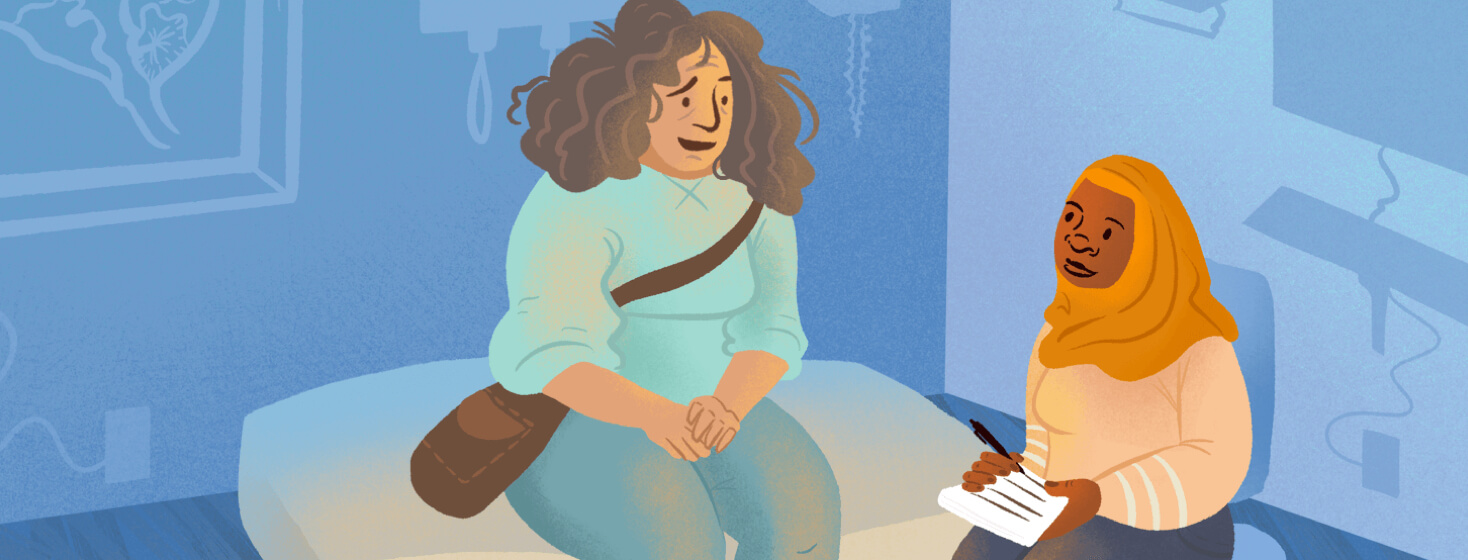How I Prepare for Medical Appointments
Most of us living with narcolepsy are probably well acquainted with regular visits to the doctor. Unfortunately, people diagnosed with narcolepsy very often establish this relationship with the medical system even before they receive a diagnosis at all.
These symptoms that we are afflicted with daily (even something as simple as a visit to the doctor) can present some challenging and worrisome anxieties.
Tips for reducing anxiety during doctor appointments
In my experience, what causes me the most distress whenever I have a doctor’s visit are small things such as waking up on time, remembering all the issues I need to discuss, and recalling what the doctor told me.
After many frustrating experiences, I developed some methods to alleviate my anxiety about doctor’s appointments. Here are some of the habits I have developed to do this:
Write down a list of topics/questions
Have a handy notebook or paper at home whenever you think of something that you need to bring up with your doctor, any questions that may surge, or a particular experience you’ve had.
Keep a log
Keeping a log can be useful when you feel that your medication isn’t helping (such as when stimulants are not having a lasting effect or when your Xyrem/Xywav isn’t helping you sleep). As someone who suffers from aggravating insomnia, I have sometimes kept a sleep log to help me accurately demonstrate my problem to my doctor. It is something I do when there is a specific problem.
Take a notebook/piece of paper and a pen
One of the most helpful things for me, above all, has been to take notes of advice, instructions, or recommendations that my doctor may provide. This has a significant impact on decreasing my anxiety as I do not have to worry about forgetting important information discussed.
List your meds
I’ve learned to always bring a list of my medications with me to any doctor’s appointment. Not only a list of the medications I’m currently taking but especially the medication I have tried in the past. Though this may seem obvious but sometimes it’s easy to miss certain things when put on the spot. Additionally, in the unfortunate case that (for some reason) your regular doctor isn’t available, it helps avoid the frustrating process of having to explain your entire history to a new doctor.
Bring a friend
Of course, it isn’t always possible for someone to accompany us to a doctor’s visit, but it is something to consider doing for the important ones. Not only is there someone else to help us catch anything that we may have missed, but it’s also worthwhile to have a second mindset present. Having another mindset in the room also means having another perspective or a different set of questions that you may not have considered.
Book a convenient time
The most important factor for me when it comes to scheduling anything, especially a medical appointment, is to book it when I know that I am most alert (i.e., avoiding early hours).
Do what is best for you
Ultimately, everyone is different, and everyone’s symptoms are unique, so it’s essential to do what best suits you.
I share these tips as I know that (at least in my case) anxiety can be an extremely debilitating feeling, and it’s necessary to find solutions that can help lessen the struggles we face every day.
If you have any tips of your own, please do share in the comments below! Thank you!

Join the conversation